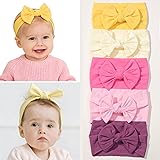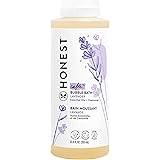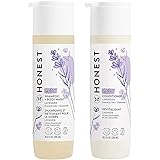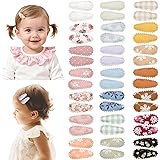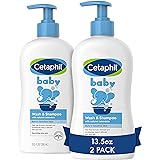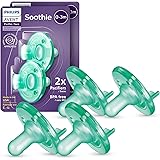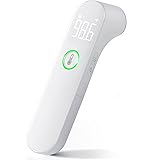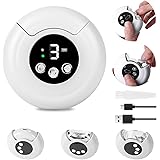Navigating the vast array of baby care products available today can be an overwhelming experience for new and seasoned parents alike. As observed in the accompanying video, discerning which items are truly beneficial for your little one often comes down to their specific needs and your personal preferences. The emphasis on selecting products that are “good” and “nice” underscores the universal desire for quality and suitability when it pertains to infant care. This comprehensive guide aims to shed light on essential baby care products, offering insights and considerations to assist in making informed choices for your family.
Understanding the Delicate Needs of Infant Skin and Health
The skin of a newborn baby is remarkably delicate and considerably thinner than that of an adult, rendering it more susceptible to irritation, dryness, and environmental factors. Its barrier function, which protects against external irritants and prevents moisture loss, is not fully developed until much later in infancy. Consequently, products intended for infants must be formulated with extreme gentleness and safety as paramount concerns.
Moreover, a baby’s immune system is still developing, making them more vulnerable to infections and allergens. Therefore, the selection of baby care products extends beyond superficial cleanliness; it encompasses the broader spectrum of health and well-being. Attention to ingredients, hypoallergenic properties, and absence of harsh chemicals is critical in safeguarding an infant’s fragile system.
Essential Baby Skincare Products for Daily Care
Maintaining a healthy skin barrier is fundamental to a baby’s comfort and protection. A curated selection of skincare items forms the cornerstone of daily infant care. Each product category serves a distinct purpose in keeping a baby’s skin soft, hydrated, and free from irritation.
Gentle Cleansers and Shampoos
When it comes to bathing, the use of a gentle, pH-balanced cleanser specifically designed for babies is highly recommended. These formulations are typically tear-free and free from harsh soaps, sulfates, and artificial fragrances, which can strip natural oils from the skin. A small amount of cleanser is generally sufficient for a full bath, with the focus remaining on quick, efficient cleaning to prevent skin dryness.
Moisturizers and Lotions for Baby Skin
After bathing, the application of a baby-specific moisturizer helps to lock in hydration and prevent dryness, particularly in infants prone to eczema or sensitive skin. Products that are hypoallergenic and free of perfumes and dyes are preferred. Regularly moisturizing can help reinforce the skin’s natural barrier, keeping it supple and protected throughout the day.
Diaper Rash Creams and Ointments
Diaper rash is a common concern for infants, often caused by prolonged exposure to moisture and irritants. A high-quality diaper rash cream, typically containing zinc oxide or petroleum jelly, creates a protective barrier on the skin, shielding it from wetness and allowing irritation to heal. Frequent diaper changes, coupled with proper cleansing and the application of such creams, are crucial for preventing and treating this condition effectively.
Bath Time Essentials: Creating a Safe and Soothing Routine
Bath time is not only about cleanliness but also offers a valuable opportunity for bonding and sensory development. Establishing a safe and enjoyable routine requires the right set of tools and careful preparation.
-
Baby Bathtub: A dedicated baby bathtub is essential for safety, providing a secure, non-slip surface that supports the infant’s head and body. Options range from simple plastic tubs to more elaborate designs with built-in recliners.
-
Soft Towels and Washcloths: Ultra-soft hooded towels made from cotton or bamboo are ideal for wrapping a baby warmly after a bath. Gentle washcloths are also necessary for careful cleansing of delicate areas.
-
Water Temperature Gauge: Ensuring the bath water is at an appropriate temperature (typically around 98-100°F or 37-38°C) is vital to prevent scalding or chilling. A simple bath thermometer can provide this reassurance.
Feeding and Sterilization Solutions for Newborns
For parents who choose bottle-feeding, whether with formula or expressed breast milk, a range of specialized baby care products becomes indispensable. Proper hygiene in this area is paramount to a baby’s health.
-
Bottles and Nipples: A variety of bottle types and nipple flows are available, allowing parents to find the best fit for their baby’s feeding style. It is often recommended to have several bottles on hand to ensure continuous availability.
-
Bottle Brushes and Drying Racks: Thorough cleaning of bottles and nipples requires specialized brushes that can reach all parts of the bottle. A dedicated drying rack helps keep sterilized items hygienic and organized.
-
Sterilizers: Sterilizing feeding equipment is crucial for infants, particularly during the first few months, to protect against harmful bacteria. Electric steam sterilizers, microwave sterilizers, and cold water sterilization methods are popular choices, each offering convenience and effectiveness.
Health and Safety Tools for Every Nursery
Being prepared for minor ailments or unexpected situations is a key aspect of responsible infant care. A well-stocked baby first-aid kit and essential health monitoring tools provide peace of mind.
-
Digital Thermometer: A reliable thermometer is non-negotiable for monitoring a baby’s temperature, especially when fever is suspected. Rectal thermometers are often considered the most accurate for newborns, though temporal or underarm options can also be useful.
-
Nail Clippers or Files: Keeping a baby’s tiny nails trimmed is important to prevent scratches and injuries. Specialized baby nail clippers or soft emery boards are designed for this delicate task.
-
Nasal Aspirator: To help clear stuffy noses, a nasal aspirator can be incredibly effective. Bulb syringes or more advanced models are available to gently remove mucus, allowing the baby to breathe more easily.
-
First-Aid Kit: A basic baby first-aid kit should include items such as antiseptic wipes, adhesive bandages (though rarely used on infants directly), infant-appropriate pain relief (consult a pediatrician), and gauze pads.
Making Informed Choices: Key Considerations for Baby Care Products
The marketplace offers an overwhelming selection of baby care products, making the decision-making process complex. Several factors should be taken into account when choosing items for your infant, ensuring both safety and efficacy.
Ingredient Scrutiny and Label Reading
Careful examination of product labels is paramount. Parents are encouraged to look for products that are free from common irritants and potential allergens. Ingredients such as parabens, phthalates, synthetic fragrances, sulfates (SLS/SLES), and dyes should ideally be avoided. Opting for products labeled “hypoallergenic,” “dermatologist-tested,” or “pediatrician-recommended” often provides an additional layer of assurance.
Certifications and Standards
Various certifications exist to help guide consumers toward safer and more sustainable choices. While not always mandatory, seals from organizations that test for harmful substances (e.g., EWG Verified, USDA Organic for certain products, National Eczema Association seal) can indicate a product’s adherence to higher safety and environmental standards. These certifications often signify a commitment to reduced chemical exposure for infants.
Patch Testing and Professional Consultation
Even with carefully selected products, individual reactions can occur due to unique sensitivities. It is often advisable to perform a patch test by applying a small amount of a new product to a discreet area of the baby’s skin (e.g., inner forearm) and observing for any adverse reactions over 24 hours. Furthermore, consulting with your pediatrician regarding any concerns about product choices or skin conditions is always recommended. Their professional guidance can be invaluable in tailoring product selections to your baby’s specific needs.



